Cancer Videos
-
Four Key Ways to Help Prevent Cancer
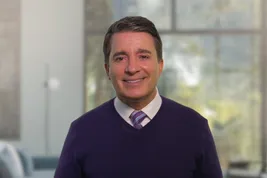
WebMD's Chief Medical Officer, John Whyte, MD, outlines four key ways to lower your risk of cancer, taken from his new book, "Take Control of Your Cancer Risk."
-
Reviving Interventional Therapies for Cancer Pain Management
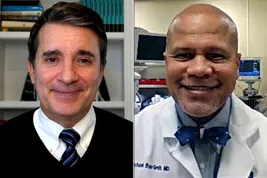
WebMD's Chief Medical Officer, John Whyte, MD, speaks with Michael Byas-Smith, MD, Medical Director, Capital Caring Schaufeld Family Advanced Pain Clinic, about managing cancer pain with alternative interventional therapies.
-
Doing Handstands to Fund Pediatric Cancer Research
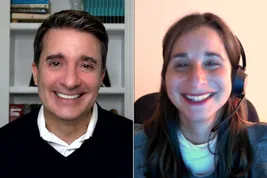
WebMD's Chief Medical Officer, John Whyte, MD, speaks with Caryn Freiberger, organizer of the Gotham Gymnastics Handstand Walk with Eloise, about her initiative to raise funds and awareness for pediatric cancer research.
-
Early Detection May Define the Future of Pancreatic Cancer Care

WebMD's Chief Medical Officer, John Whyte, MD, speaks with Lynn Matrisian, PhD, MBA, chief science officer of the Pancreatic Cancer Action Network (PanCAN), about new screening tests for pancreatic cancer and the hope of finding this hard-to-diagnose condition earlier.
-
A Global Perspective on Cancer

HRH Princess Ghida Talal, a champion of cancer research and prevention, gives John Whyte, MD, MPH, chief medical officer at WebMD, insight into the international fight.
-
The Growth of Immunotherapy

Historically, there were three treatments for cancer: radiation, chemotherapy, and surgery. A fourth option, immunotherapy, has grown in scope and capability in the past 20 years.
-
Cancer Screenings and Prevention

John Whyte, MD, chief medical officer at WebMD, and gastroenterologist Paul Limburg, MD, talk about the incredible advances in cancer screenings over the past several years, especially for colorectal cancers.
-
The Link Between Sugar, Obesity, and Certain Cancers
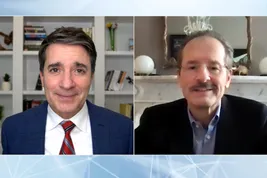
John Whyte, MD, chief medical officer at WebMD, and Lewis Cantley, MD, a professor of cancer biology at Weill Cornell Medicine, discuss the connection between sugar, obesity, and certain cancers. Does glucose feed cancer cells?
-
The Rise of GI Cancers
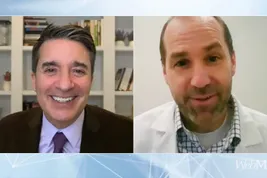
John Whyte, MD, chief medical officer at WebMD, and medical oncologist Timothy Cannon, MD, discuss the rise of gastrointestinal cancers from your esophagus to your colon. Is there a link to red meat and infectious diseases? And what does the latest research reveal?
-
What COVID-19 Has Taught Us
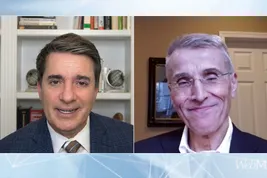
John Whyte, MD, chief medical officer at WebMD, and Richard Pazdur, MD, of the FDA, discuss why cancer patients feel forgotten during the pandemic and what doctors will take away in terms of treatment.
-
The Advancement of Drug Development
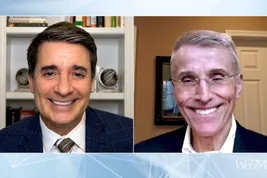
John Whyte, MD, chief medical officer at WebMD, and Richard Pazdur, MD, of the FDA, discuss the approval of cancer drugs and how those drugs have grown so much better.
-
The Latest Research in Treatment and Prevention
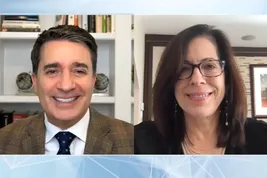
John Whyte, MD, chief medical officer at WebMD, and Elizabeth Jaffee, MD, of Johns Hopkins, discuss immunotherapy, cancer vaccines, and genetics.
-
The Importance of Prevention From the CDC
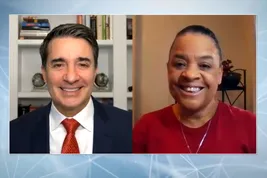
John Whyte, MD, chief medical officer at WebMD, and Lisa Richardson, MD, director of the Division of Cancer Prevention at the CDC, discuss data and the latest research on all things cancer.
-
4 Friends Bond During Cancer Treatment
Chloe, Lauren, McKinley, and Ava bond and find strength through each other as they complete their cancer treatment.
-
Video on Managing Your Side Effects From CLL Treatments
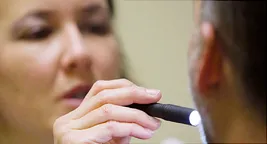
Nauseated? Have stomach problems? Learn ways to soothe your discomfort from treatments for this blood and bone marrow cancer.
-
Video on CLL Treatments

There are a number of effective treatments for CLL, a cancer of your blood and bone marrow. What are the pluses and minuses of each?
-
Video on What to Expect During CLL Remission

What’s the difference between complete versus partial remission? And what lies ahead for you with this blood and bone marrow cancer?
-
What Is Chronic Lymphocytic Leukemia?
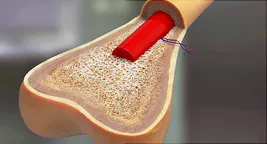
An inside look at CLL and how damaged white blood cells build up in your bone marrow.
-
Video on Getting Emotional Support During CLL Treatment

A few tips to navigate the emotional hurdles that come after news of a CLL diagnosis.
-
Video on Healthy Tips During B-Cell Lymphoma Treatment

Light exercise, proper nutrition, and a reliable network to lean on can boost your energy and ease side effects while you recover from B-cell lymphoma treatment.
-
Dying on Your Own Terms

A man and his physician share their perspective on life and death leading up to his medically-assisted death.
-
CRISPR Gene Editing: What You Need to Know

CRISPR is a gene editing technology that allows scientists to rearrange or remove DNA. Scientists hope it will pave the way to cures for certain inherited diseases.
-
Video on Healthy Habits During Immunotherapy Cancer Treatment

Feel better and stay healthy during your cancer treatment with these simple reminders on foods and fitness.
-
Video on Myelofibrosis Treatments

There isn’t a cure for this rare bone marrow disease, but it’s a very treatable leukemia. What therapies are there?
-
Video on Myelofibrosis Symptoms

What symptoms come with this rare blood disorder that affects stem cells in your marrow?
Pagination
